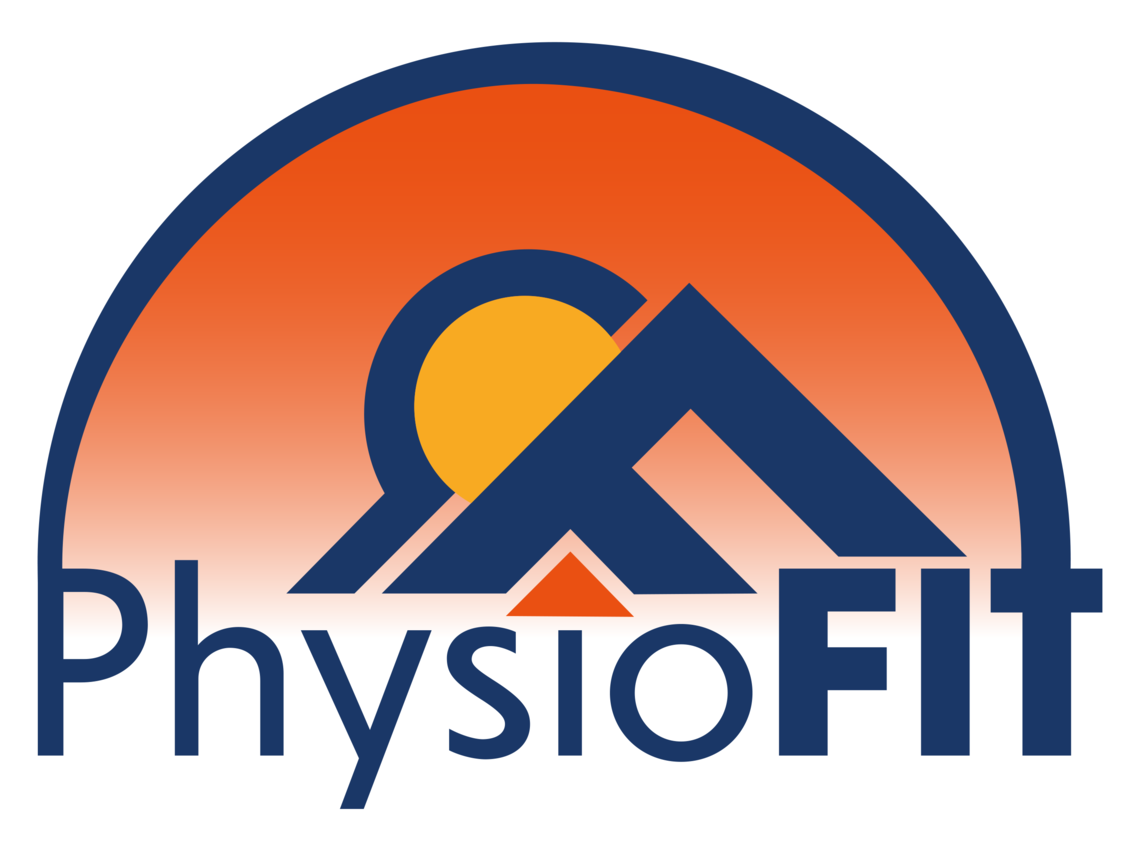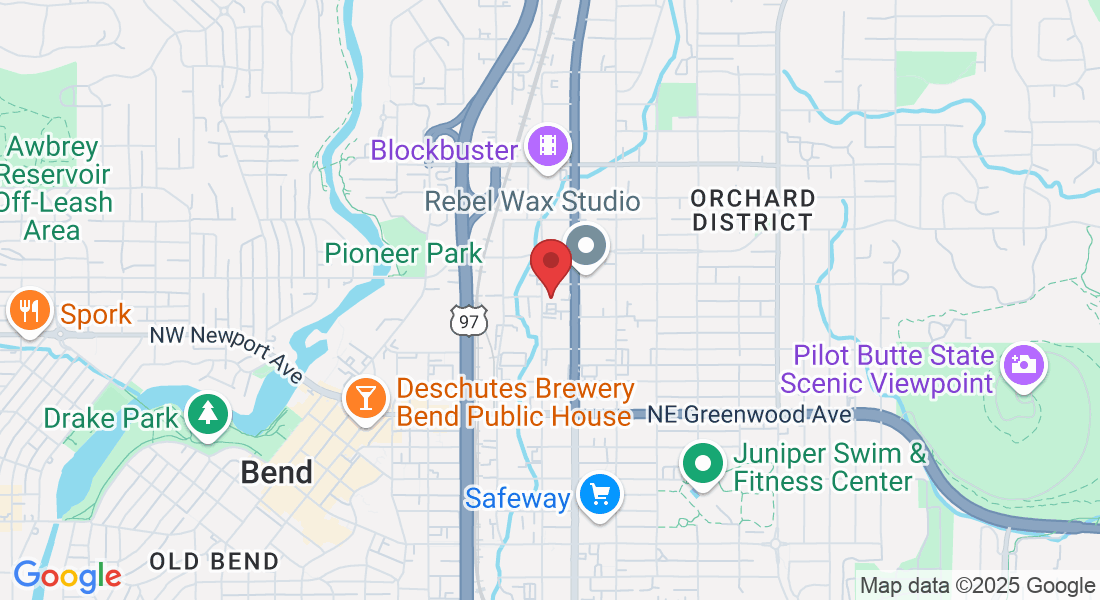Chronic Headache Relief
Free Your Mind From Chronic Headaches
Headaches are an occasional unwelcome guest for many of us, but when they become a frequent visitor, you may be dealing with chronic daily headaches. A broad term that includes various subtypes defined by their frequency and duration. These headaches can be significantly debilitating, but with assertive initial treatment and ongoing management, pain reduction and fewer headaches are achievable. If this strikes a chord with your experience, don't hesitate to schedule an appointment with us.
Discover Unprecedented Relief from Chronic Headaches at PhysioFit: We prioritize personalization in your healthcare journey, acknowledging that individuals with Chronic Headaches necessitate distinct treatment strategies. Utilizing the potency of empirically-supported, fitness-centric physical therapy in bend, we aim to do more than merely alleviate your symptoms. Our mission encompasses the enhancement of your holistic health, prevention of enduring pain, and speeding up your recuperation period, enabling a smooth transition back into your daily routines.
What You Should Know
Migraine headaches can be categorized into two types: episodic and chronic. While chronic migraines happen more than 15 days in a month, episodic ones occur less frequently.
The very medicine you're consuming for headache relief could potentially be causing headaches: Taking pain relievers beyond two days a week, even common ones such as ibuprofen, puts you at risk for what's known as a rebound headache. Similarly, abruptly discontinuing regular pain medication can provoke headaches.
The origin of your headaches may not necessarily be your head: Secondary headaches stem from an underlying health issue, like degenerative disc disease in the spine, sinus infections, or past experiences of head trauma. Although infrequent, persistent headaches and visual disturbances can also be caused by brain tumors.
A proper diagnosis of a TMJ or TMD problem involves a thorough evaluation from a professional.

What Causes Chronic Headaches?
The triggers of numerous chronic daily headaches remain somewhat elusive. Authentic (primary) chronic daily headaches don't present with a detectable root cause.
However, a series of conditions could instigate nonprimary chronic daily headaches, such as:
Vascular Issues: Any inflammation or complications with the blood vessels surrounding or within the brain, including serious events like a stroke, could trigger chronic daily headaches.
Infectious Diseases: Certain infections, notably meningitis, can also result in the manifestation of chronic daily headaches.
Intracranial Pressure Discrepancies: Abnormally high or low pressure within the skull could prompt these types of headaches.
Presence of a Brain Tumor: Brain tumors, whether malignant or benign, could be a potential cause of chronic daily headaches due to the pressure they exert on surrounding brain tissue.
Traumatic Brain Injury: Traumatic events causing injury to the brain can also be a catalyst for chronic daily headaches, as the brain recovers and copes with the trauma.
If any of this information resonates with your current situation, we urge you to schedule an appointment with us immediately. Don't let hip pain diminish your life quality - allow us to help you embark on the path to relief today.
Can Chronic Headaches Be Prevented?
The short answer is yes, chronic headaches can often be prevented, or at least their frequency and intensity can be significantly reduced. The following strategies focus on lifestyle changes and self-care measures which can help you manage and potentially prevent chronic headaches:
Identify Headache Triggers: Proactively documenting each headache in a journal can highlight patterns and triggers, thereby helping you to avoid these. Make sure to record important details like the time the headache started, what you were doing, and how long it lasted.
Cautious Medication Usage: Excessive consumption of headache medications, including over-the-counter ones, can increase the severity and frequency of headaches. It's advisable to consult your doctor for a safe plan to gradually reduce medication use, as abrupt discontinuation can lead to severe side effects.
Quality Sleep: For an average adult, 7-8 hours of sleep a night is essential. Try to maintain a consistent sleep schedule and seek medical advice if you have sleep disturbances, such as snoring.
Regular, Balanced Meals: Aim to eat healthy meals at consistent times daily. Be mindful of potential food and drink triggers like caffeine, and adjust your diet accordingly. Weight loss should be considered if obesity is a concern.
Regular Exercise: Engage in routine aerobic activities to improve your physical and mental well-being and reduce stress. Choose enjoyable activities like walking, swimming, or cycling, and remember to gradually increase the intensity to prevent injury.
Stress Management: Stress can often trigger chronic headaches. Incorporate stress-reducing techniques into your routine such as yoga, tai chi, and meditation. Moreover, staying organized, planning ahead, and maintaining a positive outlook can greatly help in managing stress.
Moderate Caffeine Intake: While caffeine is included in many headache medications due to its pain-alleviating properties, it can also exacerbate headaches. Try to reduce or completely remove caffeine from your diet.

Common Symptoms of Chronic Headaches
Chronic daily headaches, as the name implies, occur more than half the month, lasting for a period exceeding three months. Primary chronic daily headaches are those not precipitated by any underlying health condition.
These headaches can be of shorter or longer duration. Those falling in the long-lasting category persist for over four hours. The types of long-lasting chronic headaches encompass:
Persistent Migraines
Continuous Tension-Type Headache
Newly Appearing Daily Persistent Headache
Hemicrania Continua
Remember, if you resonate with any of the symptoms or conditions mentioned, we highly recommend making an appointment with us for a thorough evaluation and personalized treatment plan.
Please Note: The information provided on our website is intended for general education and is not a substitute for professional medical advice. Each individual's situation and body is different. Therefore, what may work for one person may not work for another. We care about your well-being and advise you to reach out to us to discuss your specific needs before implementing any advice from our website.
Your Source for All Things Physical Therapy in Bend Oregon
The PhysioBlog

Preventing Falls in Bend Oregon's Senior Community: The Role of Physical Therapy
Understanding Falls and Their Impact on the Senior Community
Please Note: The information provided on our website is intended for general education and is not a substitute for professional medical advice. Each individual's situation and body are different. Therefore, what may work for one person may not work for another. We care about your well-being and advise you to reach out to us to discuss your specific needs before implementing any advice from our website.
Introduction
In the picturesque city of Bend, Oregon, the senior community faces a common yet often overlooked issue - falls. Falls are not just about minor bruises or scrapes; they are a significant health concern for older adults. They can lead to severe injuries, loss of independence, and even death. The role of physical therapy in Bend, Oregon is crucial in this context, as it plays a significant part in preventing falls and ensuring the safety of our seniors.
The Prevalence of Falls in Older Adults
According to the Centers for Disease Control and Prevention (CDC), one out of every four older adults falls each year in the United States. These falls often lead to serious injuries such as fractures and head injuries. The World Health Organization (WHO) further highlights the severity of this issue, stating that falls are the second leading cause of accidental or unintentional injury deaths worldwide.
In Bend, Oregon, the situation is no different. Our senior community is equally at risk. With an aging population, the older citizens of the city need effective strategies to prevent falls and ensure the safety of its older residents.

The Role of Physical Therapy in Preventing Falls
Physical therapy is a powerful tool in preventing falls among older adults. It involves a range of interventions designed to improve balance, strength, and mobility - all crucial factors in preventing falls.
Physical therapists in Bend, Oregon, are trained professionals who can assess an individual's risk of falling and design a personalized exercise program to address their specific needs. These exercises often focus on improving balance, strengthening lower body muscles, and increasing flexibility.
There are two main approaches to physical therapy - preventive and reactive. Preventive physical therapy aims to reduce the risk of falls before they happen. This approach is particularly beneficial for individuals who have a high risk of falls due to factors such as previous fall history, mobility issues, or certain medical conditions.
On the other hand, reactive physical therapy focuses on helping individuals recover after a fall, regain their mobility, and prevent future falls. Both approaches are essential in ensuring the overall well-being of our seniors.
Falls and Fractures: A Dangerous Combination
Falls are dangerous because they often lead to fractures. When an older adult falls, their risk of fracturing a bone is significantly high due to factors like osteoporosis and decreased muscle mass.
Fractures are particularly dangerous for older adults. They can lead to long-term complications such as chronic pain, disability, and in some cases, death. According to the WHO, fractures resulting from falls can increase the risk of death in older adults.
However, the good news is that physical therapy can play a significant role in preventing fractures. By improving balance, strength, and mobility, physical therapy can reduce the risk of falls, and consequently, the risk of fractures.
In Bend, Oregon, physical therapists are committed to helping the senior community stay safe and healthy. At PhysioFIT, we pride ourselves in helping our older clients thrive on their feet without the burden of so much pain. Physical therapists in Bend provide valuable services that not only help in recovering from falls but also in preventing them in the first place.
Strategies for Fall Prevention in Bend Oregon's Senior Community

Physical Therapy Techniques for Fall Prevention
At PhysioFIT, we offer a range of physical therapy techniques specifically designed to prevent falls among older adults. These techniques focus on improving balance, strengthening muscles, and enhancing mobility - all crucial factors in preventing falls. However, it's important to note that these techniques should only be performed under the guidance of a professional physical therapist. Each individual's needs are unique, and a proper evaluation is necessary before starting any type of workout or technique. If you need help, please reach out to us at www.PhysioFITBend.com and schedule an appointment with us today.
Some of the specific physical therapy techniques we use at PhysioFIT include:
Balance exercises: These exercises help improve stability and coordination, reducing the risk of falls. They may involve standing on one leg, walking heel to toe, or using balance boards.
Strength training: Strengthening lower body muscles can make it easier to catch oneself and prevent a fall. We may recommend exercises like leg lifts, squats, or resistance band workouts.
Flexibility and mobility exercises: These exercises help improve joint flexibility and range of motion, making movement easier and safer. They might include gentle stretching exercises or yoga.
Gait and coordination training: This involves learning to walk safely and efficiently, possibly with the aid of assistive devices. It can be particularly beneficial for those who have suffered a stroke or have conditions like Parkinson's disease.
FAQs
What are the benefits of physical therapy for fall prevention? Physical therapy can significantly reduce the risk of falls by improving balance, strength, and mobility. It can also help individuals recover from a fall and prevent future falls.
Can physical therapy help if I've already had a fall? Yes, physical therapy is not just about prevention. It can also help individuals recover after a fall, regain their mobility, and prevent future falls.
What can I expect from a physical therapy session at PhysioFIT? At PhysioFIT, you can expect a personalized approach to your health. Our physical therapists will conduct a thorough evaluation to understand your specific needs and design a customized exercise program to help prevent falls.
How often do I need to do these exercises? The frequency of exercises will depend on your individual needs and physical condition. Your physical therapist at PhysioFIT will provide guidance on how often and how much you should exercise.
Conclusion
In conclusion, falls are a significant issue among the senior community in Bend, Oregon. However, with the right strategies, such as the physical therapy services offered at PhysioFIT, we can significantly reduce the risk of falls and ensure the safety of our seniors.
Physical therapy plays a crucial role in fall prevention. It not only helps improve balance, strength, and mobility but also provides a proactive approach to health and well-being. We encourage seniors and their families to consider physical therapy as part of their fall prevention strategy.
At PhysioFIT, we are committed to helping our seniors live their golden years in health, safety, and happiness. We believe that with the right support and guidance, every senior has the ability to prevent falls and live a fulfilling, independent life.
Please Note: It's important to note that any exercises that are shared should be performed under the guidance of a qualified physical therapist in bend to ensure correct technique and to prevent injuries. Each person has a different set of circumstances and a physical therapist can provide a customized exercise program based on the individual's fitness level, goals, and any existing injuries or conditions. If you’d like to explore this more or would like to schedule a time with a physical therapist, contact us at PhysioFITBend.com
Copyright PhysioFIT 2025 . All rights reserved


